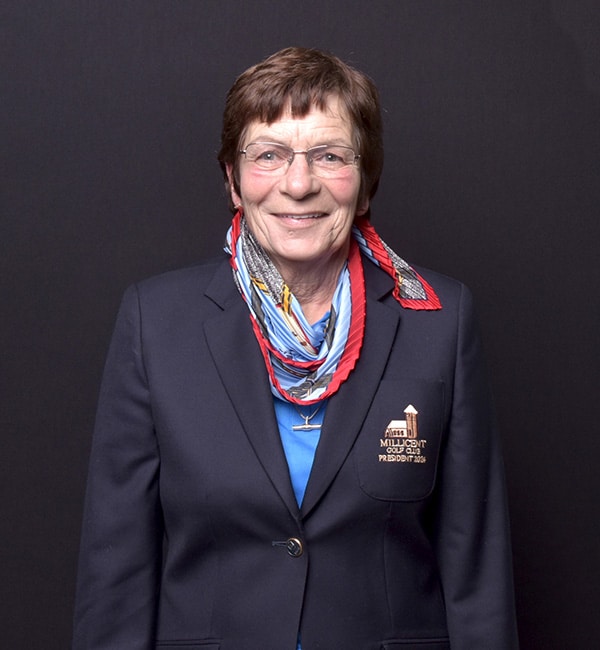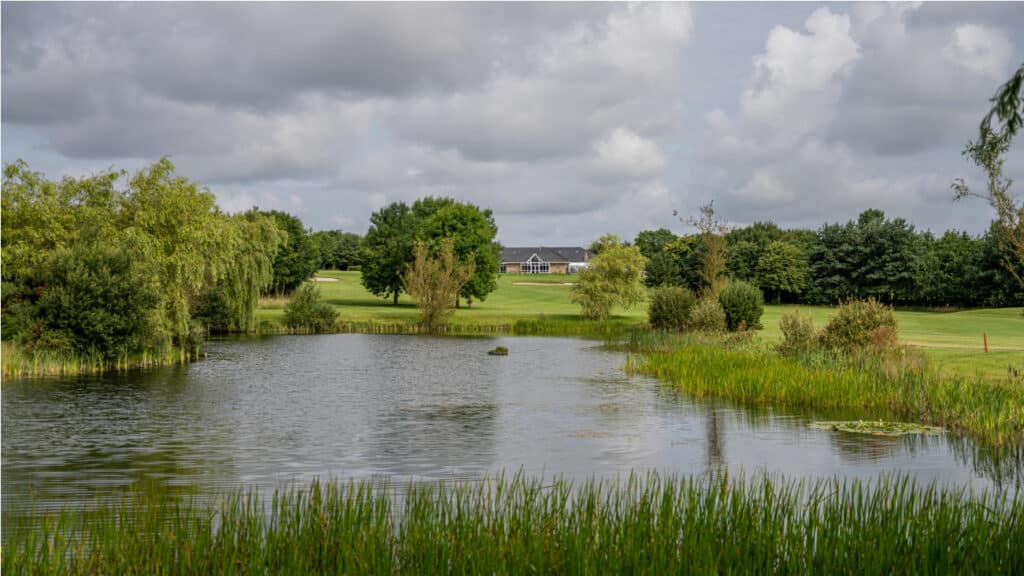Conveniently located less than 30 minutes from Dublin, this superb 18 hole USGA specification championship golf course is a gem nestled in the Ryder Cup countryside. Set in beautiful surroundings lined by the river Liffey along several holes and in front of the backdrop of the Dublin and Wicklow mountains. Using the natural landscape to its fullest, this 150 acre course is a challenge for golfers of all abilities.



With tee boxes allowing a length from 5400 to 7000 yards, this par 73, championship course brings great variety and challenge to every round and makes Millicent an attractive and enjoyable course to play.
The flagship hole is undoubtedly the superb 17th measuring 198 yards from the back tee, with a carry over water to a small green, and large bunker to the back and right side”
Tommy Halpin, course architect.

As your Captains for 2024, Deirdre and I are honoured and privileged to lead Millicent Golf Club. We’ve been overwhelmed by the warmth and support from our fellow members since our appointments, and are determined to live up to the high standards set before us.
Millicent Golf Club isn’t only about golf; it’s a community hub of passionate, active members who volunteer across various aspects of the club. Their dedication is the backbone of our club, and we encourage everyone to contribute when they can, be it as a volunteer, a committee member or represent our club as a participant on one of our many interclub teams.
We’re excited to meet, play, celebrate, and socialise with all of you throughout 2024. We have ambitions for the year which have been adopted by all at committee level, and hope you, our fellow members, will participate in achieving all of these. Here’s to a fantastic year ahead at Millicent Golf Club!




We can organise a special day for your club or society. Why not choose one of Kildare’s premier clubs as your preferred venue. An excellent golf course, luxurious clubhouse facilities and superb dining makes Millicent the ideal location for your outing.


We can organise a special day for your club or society. Why not choose one of Kildare’s premier clubs as your preferred venue. An excellent golf course, luxurious clubhouse facilities and superb dining makes Millicent the ideal location for your outing.
Why not choose one of Kildare’s premier golf clubs for your society? Millicent offers an excellent golf course, relaxed and luxurious clubhouse facilities and superb dining options for your society to have a memorable day. We cater for societies of all sizes on weekdays and some Saturdays throughout the year.